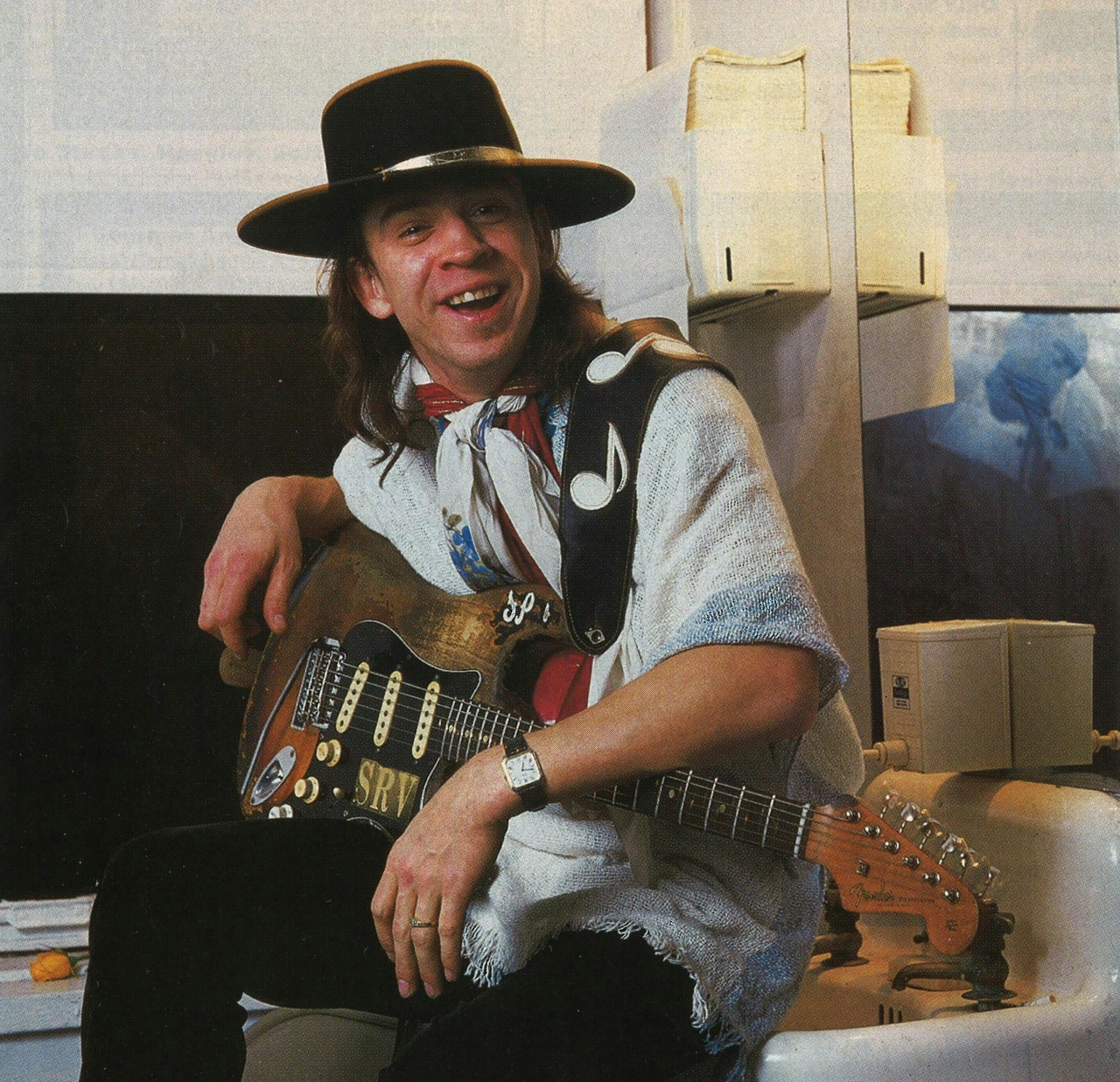🌌 A Summer Night in Wisconsin
On August 26, 1990, the Alpine Valley Music Theatre in East Troy, Wisconsin, was alive with electricity. A lineup of blues royalty filled the stage: Eric Clapton, Robert Cray, Buddy Guy, Jimmie Vaughan, and the youngest of them all—Stevie Ray Vaughan. The crowd of nearly 40,000 fans knew they were in for a historic night, but no one could have predicted it would be Vaughan’s last performance.
The air carried that unmistakable late-summer chill. Clapton had invited Vaughan to join the tour, pairing the young Texan’s fire with the elder statesman’s grace. For Stevie, it was more than another gig—it was proof that his demons were behind him. After years of battling drugs and alcohol, he was clean, clear-eyed, and playing better than ever. The Alpine Valley concert was supposed to be a victory lap.


🎶 “All-Star Jam” – A Gathering of Legends
The night closed with a fiery jam session that felt almost biblical. Clapton called everyone back to the stage for a finale: Robert Cray, Buddy Guy, Jimmie Vaughan, and Stevie. Together, they launched into a medley, letting the blues flow like thunder.
But it was “Sweet Home Chicago”, the last song of the night, where Stevie shone brightest. Trading solos with his heroes, his guitar cried, laughed, and roared. He bent notes until they screamed, ripped through licks with fiery precision, then stepped back with humility, letting the others shine. It wasn’t just another jam—it was a passing of the torch. And when the final note rang out, the crowd erupted, unaware they had just witnessed a farewell.
🌙 A Flight into the Night
After the show, helicopters were waiting to take the musicians back to Chicago. Clapton’s crew had arranged several flights. Stevie originally wasn’t on the list, but when a spot opened up, he took it—relieved not to face the long bus ride.
The night was foggy, the terrain treacherous. At 12:50 AM, Stevie’s helicopter lifted off. Just a few moments later, it crashed into a hillside less than a mile from the venue. All five people aboard were killed instantly. Stevie Ray Vaughan was gone at 35.
🎸 The Power of His Playing
What made the Alpine Valley show so haunting wasn’t just that it was Vaughan’s last—it was the way he played. Those who were there remember an artist at his peak, radiating joy and passion. His Stratocaster seemed like an extension of his soul.
Songs like “Life Without You”, which he had performed countless times as a dedication to lost friends, suddenly took on a chilling irony. “I miss you more than words can say,” he used to sing through his guitar. Within hours, those words would echo back to him.
💔 The Aftermath
News spread quickly the next morning: Stevie Ray Vaughan was dead. The blues world reeled. Eric Clapton, devastated, admitted later that he had narrowly avoided taking the same flight. Buddy Guy described it as losing “the heart of the blues.” Jimmie Vaughan, who had shared the stage with his younger brother that night, was shattered.
But the tragedy also sealed Vaughan’s legacy. He hadn’t burned out in decline—he went out in a blaze of glory, at the height of his powers, surrounded by his peers.
🌟 Legacy Beyond the Blues
In just seven years of recording, Stevie Ray Vaughan reshaped modern blues. His tone—sharp, biting, yet drenched in soul—revived a genre that had been fading from mainstream attention. He brought Muddy Waters and Albert King back into the conversation, bridging the past with the present. His albums, from Texas Flood to In Step, proved blues could still pack stadiums.
That final night at Alpine Valley was the punctuation mark. It was as if fate had allowed him one last bow, in front of an adoring audience, with his guitar blazing, before calling him home.